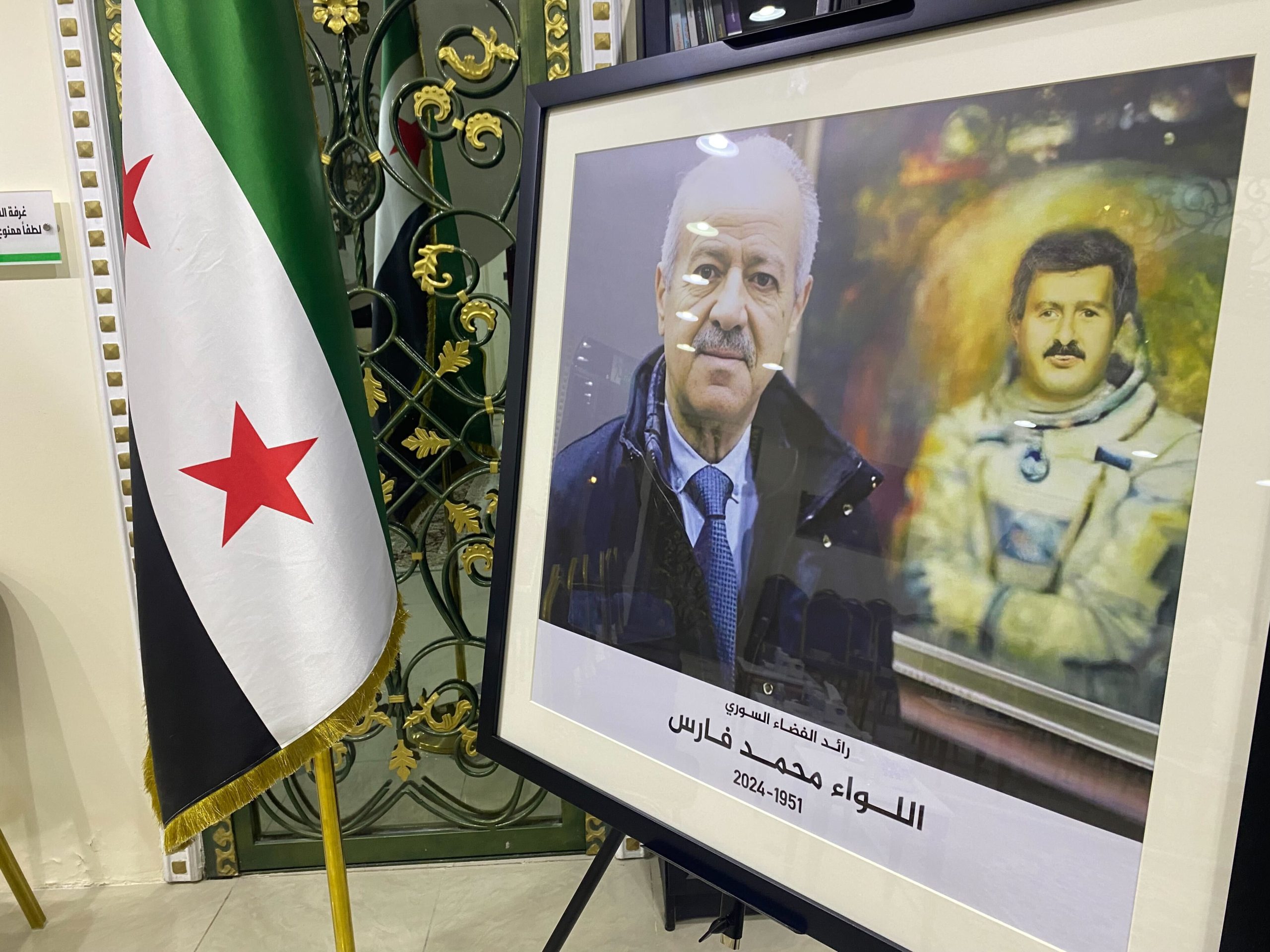The Syrian embassy in Qatar mourns the death of Muhammed Faris, Syria’s first astronaut and a prominent figure in the Syrian revolution, as thousands gather in tribute.
The Syrian embassy in Qatar held a funeral service on Monday following the death of Muhammed Faris, the first Syrian, second Arab in space and a vocal opponent of the Bashar Al Assad regime.
Faris died on Friday at the age of 72 in Turkey, where he was exiled for more than a decade, leaving behind a legacy in the Syrian revolution and the entirety of Arab space exploration.
The prominent figure left Syria in 2012 due to the Assad regime’s crackdown on pro-democracy and anti-regime protests, which plunged the country into a deadly war.
The funeral in Qatar took place on the same day Faris’s body was transported to the city of Azaz, North Aleppo, where he was laid to rest.
Thousands of mourners gathered in the area upon the arrival of his casket in a funeral scene that Syrians said they had not witnessed in years.
Speaking to Doha News, Bilal Turkiah, Charge d’Affairs at the Syrian Embassy in Qatar, said that the late general had gained the love of Syrians everywhere for his support for the revolution.
“And this is what made the Syrian regime isolate him after his trip [to outer space],” Turkiah said.
“We all lost him, and this is a great loss for us as Syrians and Arabs, and we ask God Almighty to have mercy on him and admit him to the highest paradise,” Turkiah added.
Dubbed the ‘Neil Armstrong of the Arab World’, Faris embarked on his journey to space in 1987 with the Soviet Union’s Interkosmos spaceflight programme. He became the first Syrian in space and the second Arab to achieve this milestone after Saudi Arabia’s Sultan ibn Salman Al Saud in 1985.
His missions enabled him to conduct important scientific experiments, where space granted him a freedom that he had not witnessed on planet Earth, in his homeland. He had only hoped to bring back change and development to Syria.
Faris was celebrated by tens of thousands of proud Syrians upon his return, something that angered former leader Hafez Al-Assad, the father of the current president.
Some had pointed to the fact that the former president did not hang the medal on Faris’s neck and instead handed it inside a box. Filled with ambition, Faris asked the then-leader to fund a national space programme to expand Syria’s mark in space, but his light was dimmed by Assad.
“He [Hafez Assad] wanted to keep his people uneducated and divided, with limited understanding,” Fares said in an interview with The Guardian in 2016.
“That’s how dictators stay in power. The very thought of giving the people the vision that a space science institute would give them was dangerous,” he added.
Instead of building the future he envisioned, he was installed at the Air Force College where he taught how to fly fighter jets. Faris became a Major General in the Syrian Air Force and was also one of the five top generals in Syria who defected from the regime in 2012.
“The general, at the time of the revolution, sided with the Syrian people, he chose his conscience and chose to be with his people against injustice and tyranny,” Turkiah told Doha News.
Faris spent the rest of his life in Gaziantep as the Assad regime continued to brutally kill and displace civilians in Syria. There are 3.1 million Syrian refugees in Turkiye—the biggest host of those who fled Syria—followed by Lebanon and Jordan.
In his life in Turkiye, Faris had a notable presence among millions of other Syrians in exile as well as Turkish educational institutions. He was a voice for Syrian refugees and maintained his vocal criticism of Assad.
However, he still had hope to be in a peaceful, prosperous Syria before he left this world.
“My dream is to sit in my country with my garden and see children play outside without the fear of bombs,” he said in 2016.
“We will see it, I know we will see it. I just wanted a better future for my children, but external influence on the revolution has messed it all up. It’s very difficult,” he added.







